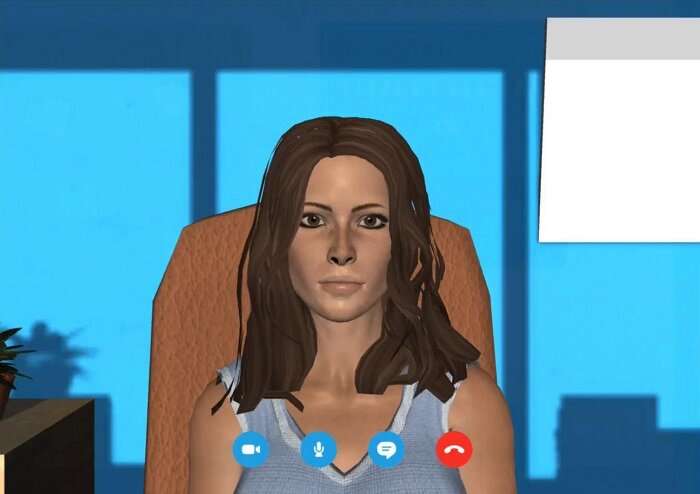Conversing with a virtual human to assess the consequences of head injuries

Brain damage caused by a head injury may affect social cognition, resulting in an "invisible" disability that reduces interactions with others. The current tests used to assess this disability can be biased, as they do not correctly target the cognitive processes as they are used in everyday interactions.
To improve this system, the team of Maud Champagne-Lavau, a researcher at the CNRS2, has developed and tested a new task with patients, described in the Journal of Neuropsychology. This new tool called EVICog3 reproduces social interactions using virtual humans, called Marie and Pierre, by placing patients in a situation that is closer to reality than with traditional tests.
The exchange is directed by an experimenter, often a psychologist, who chooses the verbal and emotional responses of the virtual humans from among those programmed. Once adapted to clinical needs, this test could become a new reference for assessing the consequences of head injuries on social interactions.
More information: Noémie Moreau et al, Speaking with virtual humans: Assessing social cognition in traumatic brain injury with a second‐person perspective task, Journal of Neuropsychology (2021). DOI: 10.1111/jnp.12257




















